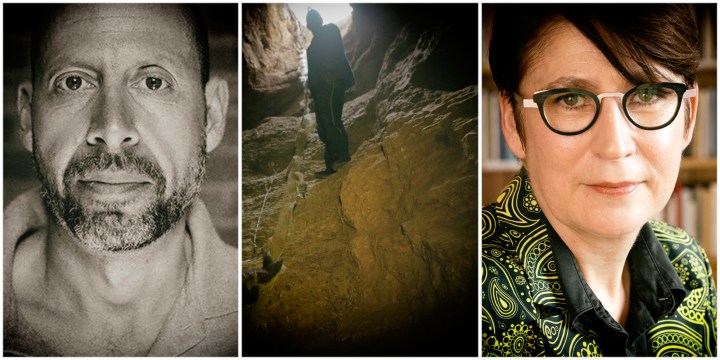DAILY MAVERICK WEBINAR
Zama zamas are ‘themselves victims’, says anthropologist Rosalind Morris

Zama zamas are ‘victims of gangsterism, they are people without documents, without typical protections provided by the Constitution and its instruments, they are people who are vulnerable to be preyed upon by gangs’, a Daily Maverick webinar has heard.
The brutal rape of eight women at a disused mine in Krugersdorp last month kicked off a revised zama zama narrative, plugged in with a xenophobic narrative, said Daily Maverick’s editor-at-large, Richard Poplak, in conversation with award-winning anthropologist Rosalind Morris.
In a webinar hosted by Daily Maverick, Morris said there were several issues knotted together and coded as the problem of the zama zamas — sexual violence, gender-based violence and gangsterism — which ought to be challenged.
“There is a question of illegalised and informal mining and that is related to the question of illegalised immigration of a sort that is associated with economic destitution and regional disrepair. And then there is the issue which has to do with the police involvement, complicity, provision of arms and/or non-response to communities like Krugersdorp.”
One of the most important things to understand was the difference between zama zamas and gangsters, she said.
Read more in Daily Maverick: The zama zama: Informal mining ‘unlike anything else in the world’
The appellation “zama zama” derives from the isiZulu language and is loosely translated as “people who keep on trying” but also “the people who risk things”.
“Most zama zamas are not members of gangs — they are themselves victims of gangsterism, they are people without documents, without typical protections provided by the Constitution and its instruments, they are people who are vulnerable to be preyed upon by gangs. Many of them have been in South Africa for years, for decades [and] have wives, children. There are women who are zama zamas as well… whether they are the wives, lovers, or in fact zama zamas,” said Morris.
“That history of gangsterism is as long as the mines themselves and in many cases was fomented by the mines or used by the mines.”
Wherever there is an illicit economy, wherever there are flows of goods, people and money, and wherever those flows are concentrated, is where gangsterism lives, said Morris.
Bheki Cele
She said there was a need to change consciousness at every level. She made this remark particularly in connection with Police Minister Bheki Cele saying that a 19-year-old who had been raped during the incident by only one man was “lucky”.
He came under fire for the remarks, with calls for his removal as police minister.
“We can’t ask what made those women vulnerable by asking what they did. There is also the need to change consciousness at every level, to root out the notion that women can be the medium for political struggles, the body, the surfaces on which people can make their claim to power.”
Morris that there was a need to address the ways in which the education system had failed to do the work of transforming consciousness in the past 25 to 30 years.
She warned that if people are not individually held to account, the broad issues are not addressed and there is no change of consciousness, “We will be in a kind of terrible series of mourning cries where this is repeated again and again.”
Visit Daily Maverick’s home page for more news, analysis and investigations
Poplak echoed similar sentiments about Cele, saying, “Until men like Cele no longer play any role in our political life and until we are reconscientised, I don’t see how we can come to any meaningful solutions to this.”
Morris has spent decades documenting small-scale miners in southern Africa.
Commenting on some of her work, Poplak said the lengths to which zama zamas went in a bid to put bread on the table were unspeakable and we should take a moment to understand the complexity of the formal mining industry in creating the possibilities for an informal sector as dangerous as the one that exists in SA.
Morris said: “There is no doubt whatsoever that if shafts are accessible after the closure of mines, that’s already an invitation to illegal activity.” DM
Sign up to Daily Maverick’s live journalism webinars to join in upcoming discussions, engage with the experts and have your questions answered in real-time right here.



















 Become an Insider
Become an Insider
Comments - Please login in order to comment.